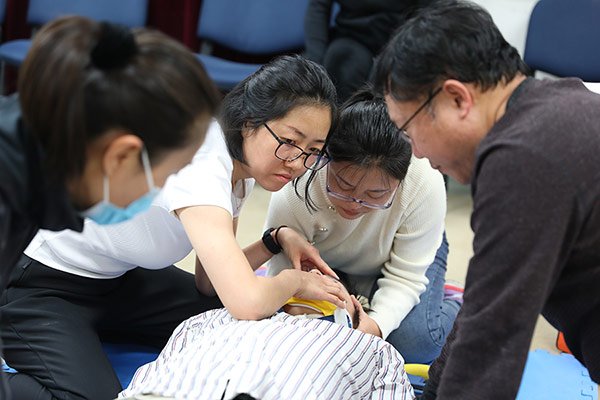

In temperatures between -20 C and -30 C, doctors often find their hands frozen not long after taking off their gloves, and they may not be able to perform precise medical procedures well with frozen hands. Thus, Fu practiced performing the procedures on a mannequin in the hospital to form muscle memory, so that her hands can perform the procedures as quickly as possible, finishing them before her hands become frozen.
Many ski doctors were injured during the training sessions. Fu had bone spurs on her feet, swollen knees, and once had a fracture in her arm. Her family and friends advised her to give up, but she refused as she wants to offer her services at the Winter Games.
Fu says that China seldom organizes professional ski doctor teams, so they are continuously exploring and gaining experience this time. "Some medical officers went to Sochi where the 2014 Winter Olympics was held to consult local professionals and gain experience to guide our training," she says.
"Moreover, since our team members come from different departments of the hospitals, we discuss with each other on many details like which medicine we should use and what postures we should adopt in different situations to administer medical procedures during the Winter Games."
At the beginning of last year, Fu and her teammates successfully provided medical care at the 14th National Winter Games.
"Since we practiced on very difficult situations during our drills, we could easily solve real-life problems during the games," she says. "The uncontrollable accidents we had imagined didn't happen, so the whole process was successful."